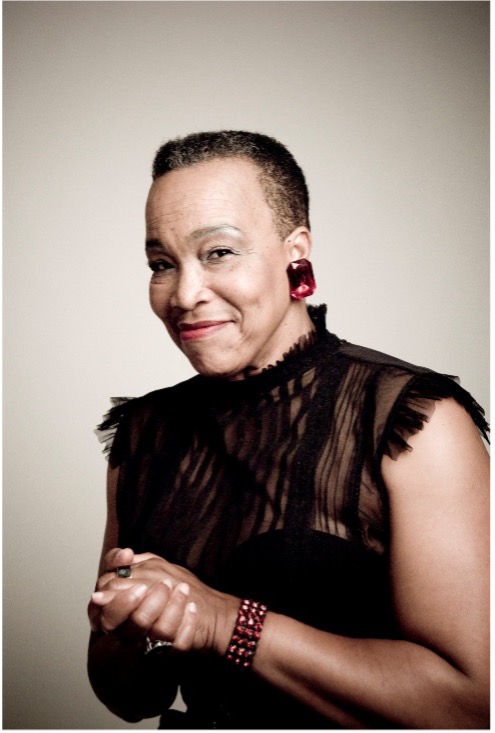A groundbreaking method of healing from trauma
Since 2008, we have worked in close partnership with Rhodessa Jones and the Medea Project – Theater for Incarcerated Women. After partnering with Ms. Jones to study and publish her groundbreaking expressive therapy method of healing from trauma, her insights now guide much of our work.

Expressive Therapy (ET) uses forms of creative expression to reduce disease symptoms and improve quality of life. It may include the therapeutic use of writing, performance, dance, and art. ET has been shown to have a positive impact on the lives of people with a variety of conditions, including PTSD, survivors of torture, diabetes, fibromyalgia, cancer, and HIV.
In 1989, Ms. Jones, the co-artistic director of Cultural Odyssey, developed the Medea Project–Theater for Incarcerated Women as a group performance intervention to empower women incarcerated at the San Francisco County Jail to value and express their life stories and to reduce recidivism. Cultural Odyssey is an artistic organization based in San Francisco that uses theater as a form of social activism by empowering performers and educating communities.
The structure and format of the original Medea intervention began organically as the incarcerated women voiced an interest in expressive therapy. Ms. Jones provided insight by explaining how the women could explore their stories and choreograph them into performances that they could act out themselves.
By 2010, Ms. Jones began working outside of jails with patients from CTHC’s Women’s HIV Program.
Learning from Medea
At the Center to Advance Trauma Informed Health Care, we studied the transformative impact on the lives of the patients that participated in the Medea Project. We uncovered five core themes: sisterhood, catharsis, self-acceptance, safer and healthier relationships, and gaining a voice. These five themes now guide all of the trauma interventions that we develop and study at CTHC.
Core Themes OF THE MEDEA PROJECT
THAT GUIDE CTHC INTERVENTIONS
| Sisterhood The formation of deep, honest, and supportive relationships among group members |
| Catharsis Freedom from the burden of secrecy about HIV, childhood and adult traumas, and other stigmatizing experiences |
| Self-acceptance Reframing the understanding of what it means to be an HIV-positive woman, normalizing life with HIV, and embracing a stronger and more positive self-identity |
| Safer and healthier relationships Developing safe, honest, authentic, and fulfilling relationships |
| Gaining a voice Gaining a sense of purpose and accomplishment as an educator and activist and the desire and confidence to change the social norms that create stigma, isolation, and trauma |
Source:
Machtinger, Edward L. MD*; Lavin, Sonja M. RN, MS; Hilliard, Starr MS; Jones, Rhodessa; Haberer, Jessica E. MD; Capito, Kristen; Dawson-Rose, Carol RN, PhD, FAAN An Expressive Therapy Group Disclosure Intervention for Women Living With HIV Improves Social Support, Self-efficacy, and the Safety and Quality of Relationships: A Qualitative Analysis, Journal of the Association of Nurses in AIDS Care: March 2015 – Volume 26 – Issue 2 – p 187-198
doi: 10.1016/j.jana.2014.05.001

